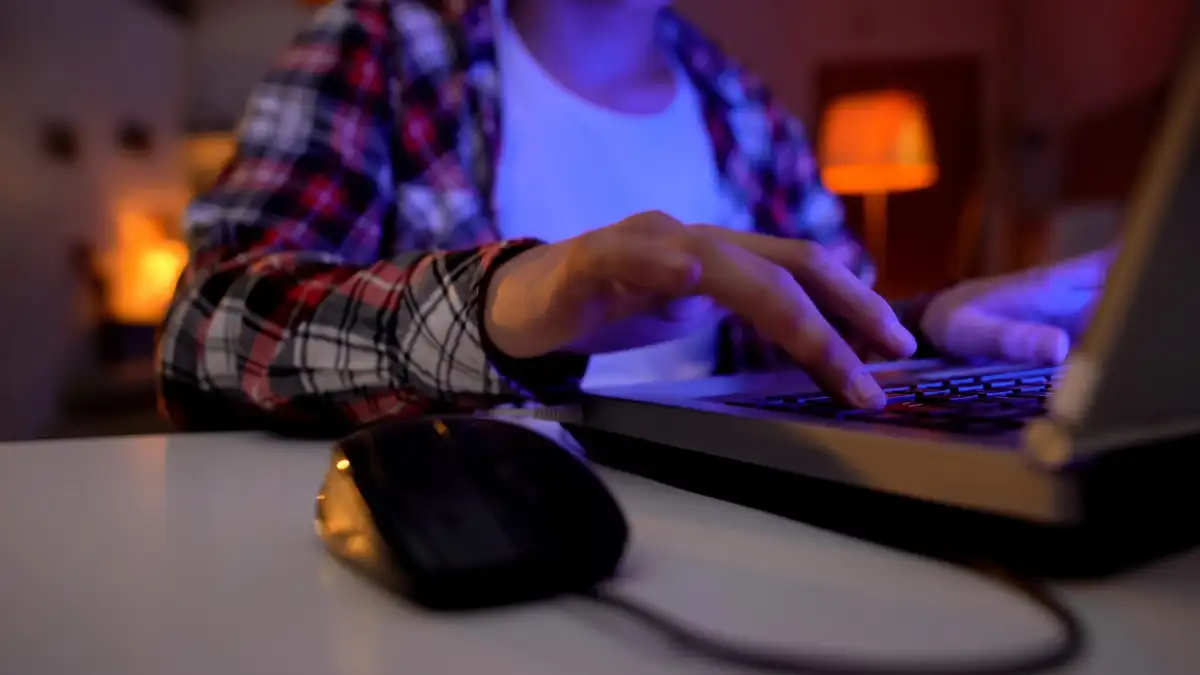Pornography is a very addicting kind of entertainment
It doesn't take much for a young kid to get locked in a cycle of addiction, no matter how heated the discussion over whether or not porn is "addictive." Even if they want to quit, they soon discover that they are unable to do so. Install parental controls on your children's mobile devices to keep them away from the trap of pornography addiction from the start. According to study, one out of every five youngsters aged 9 to 13 who possess a smartphone view porn and other inappropriate and obscene films on the internet. When youngsters between the ages of 14 and 15 are taken into account, the number rises from one out of every five to three out of every five. PornHub, the world's most popular porn site, claims a 24 percent increase in porn watching as a result of the restrictions.
Kids have a hard time identifying their boundaries
Teenagers' brains are still developing, so they may have a harder time grasping the repercussions of their actions and recognizing when a behavior is inappropriate or dangerous. It's pretty normal for children to have an online "hidden life," where they participate in detrimental habits that their parents and even friends would recognize. Virtual strangers who have entered the child's life online promote these habits. Parental controls and involvement are essential in preventing your teen from engaging in risky behaviors such as sending inappropriate photos and disclosing personal information online.
Depression is spread via depressive content.
With as many as 10% of teenagers suffering from melancholy, it's no surprise that depressing material abounds on the internet, their preferred hangout. Unfortunately, viewing such information does little to improve a teen's self-esteem or prevent them from engaging in self-harming activities. These websites may sometimes glorify self-harm or even suicide. The brains of your adolescents are still maturing. The more kids are exposed to this sort of knowledge, the more likely they are to absorb those ideas–and hence engage in harmful actions. The first line of protection against this kind of internet material is parental controls. According to the CDC, depression affects 3.2 percent of children aged 3 to 17 (about 1.9 million).
Gaming isn't always a positive experience

Many youngsters benefit from playing online games or using addicting applications. Others, on the other hand, find them just as addicting as pornography, with much more serious repercussions. The more time your kid spends
playing video games, the more likely he will struggle to adjust to adulthood. Unnaturally bright colors and sounds, combined with the dopamine rush that comes with many
video game actions–slaying the dragon, defeating the monster, successfully completing a puzzle–can lead to an addiction that leaves adolescents struggling to function in society without the input their games have provided.
What options do you have?
You can't protect your children from everything on the internet on your own, therefore I always suggest investing in good parental control software. Because most parental control apps and "safe routers" are easily circumvented by children, you have a lot to think about. These days, it is vital to not be lazy about what your kids and teenagers are doing on their mobile devices and it is crucial to be proactive. Allowing unfiltered internet in your house and on your children's devices is risky. It is in their instinct to push boundaries and explore new territory. It is our responsibility as parents to ensure that they are safe and that they do not make poor decisions that will harm them in the future.
Chrome parental control
Avosmart parental control allows you to fully
filter content on the Internet including for Chrome or Firefox browser. The application also uses a secure search mode for Google and Youtube. It also protects and monitors incognito mode.
 Many youngsters benefit from playing online games or using addicting applications. Others, on the other hand, find them just as addicting as pornography, with much more serious repercussions. The more time your kid spends playing video games, the more likely he will struggle to adjust to adulthood. Unnaturally bright colors and sounds, combined with the dopamine rush that comes with many video game actions–slaying the dragon, defeating the monster, successfully completing a puzzle–can lead to an addiction that leaves adolescents struggling to function in society without the input their games have provided.
What options do you have?
You can't protect your children from everything on the internet on your own, therefore I always suggest investing in good parental control software. Because most parental control apps and "safe routers" are easily circumvented by children, you have a lot to think about. These days, it is vital to not be lazy about what your kids and teenagers are doing on their mobile devices and it is crucial to be proactive. Allowing unfiltered internet in your house and on your children's devices is risky. It is in their instinct to push boundaries and explore new territory. It is our responsibility as parents to ensure that they are safe and that they do not make poor decisions that will harm them in the future.
Many youngsters benefit from playing online games or using addicting applications. Others, on the other hand, find them just as addicting as pornography, with much more serious repercussions. The more time your kid spends playing video games, the more likely he will struggle to adjust to adulthood. Unnaturally bright colors and sounds, combined with the dopamine rush that comes with many video game actions–slaying the dragon, defeating the monster, successfully completing a puzzle–can lead to an addiction that leaves adolescents struggling to function in society without the input their games have provided.
What options do you have?
You can't protect your children from everything on the internet on your own, therefore I always suggest investing in good parental control software. Because most parental control apps and "safe routers" are easily circumvented by children, you have a lot to think about. These days, it is vital to not be lazy about what your kids and teenagers are doing on their mobile devices and it is crucial to be proactive. Allowing unfiltered internet in your house and on your children's devices is risky. It is in their instinct to push boundaries and explore new territory. It is our responsibility as parents to ensure that they are safe and that they do not make poor decisions that will harm them in the future.

